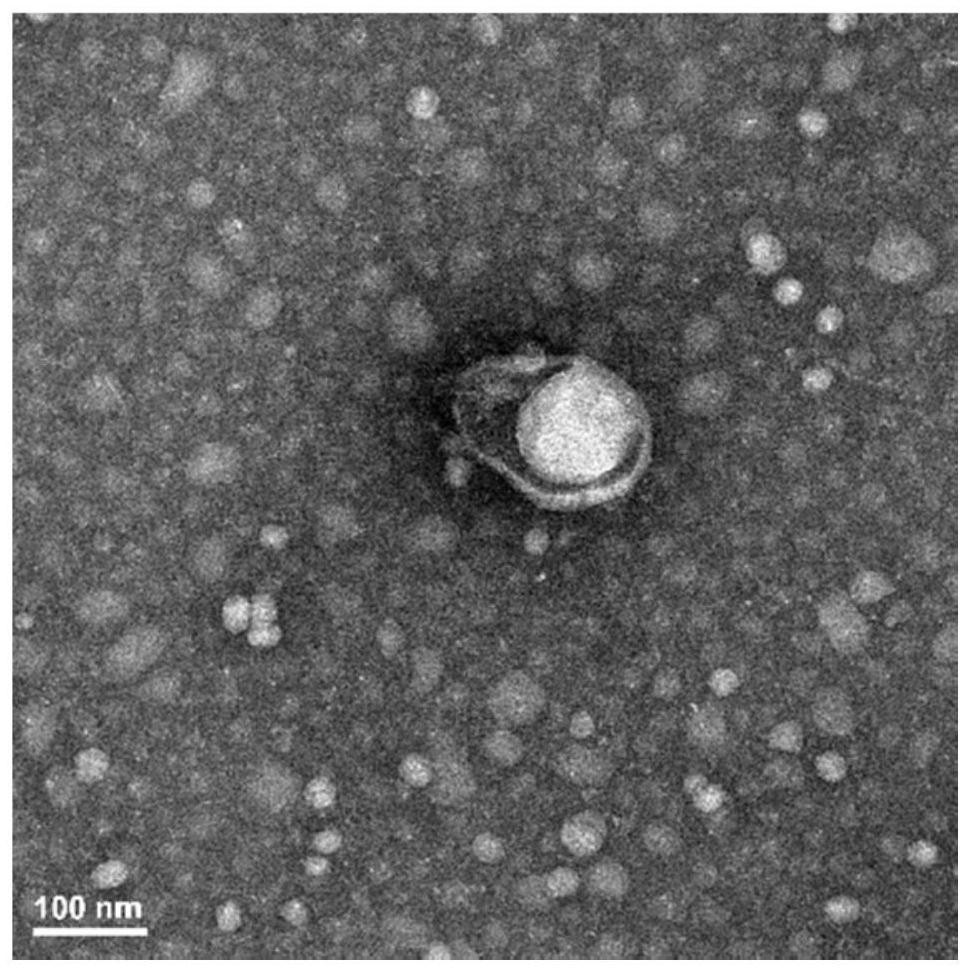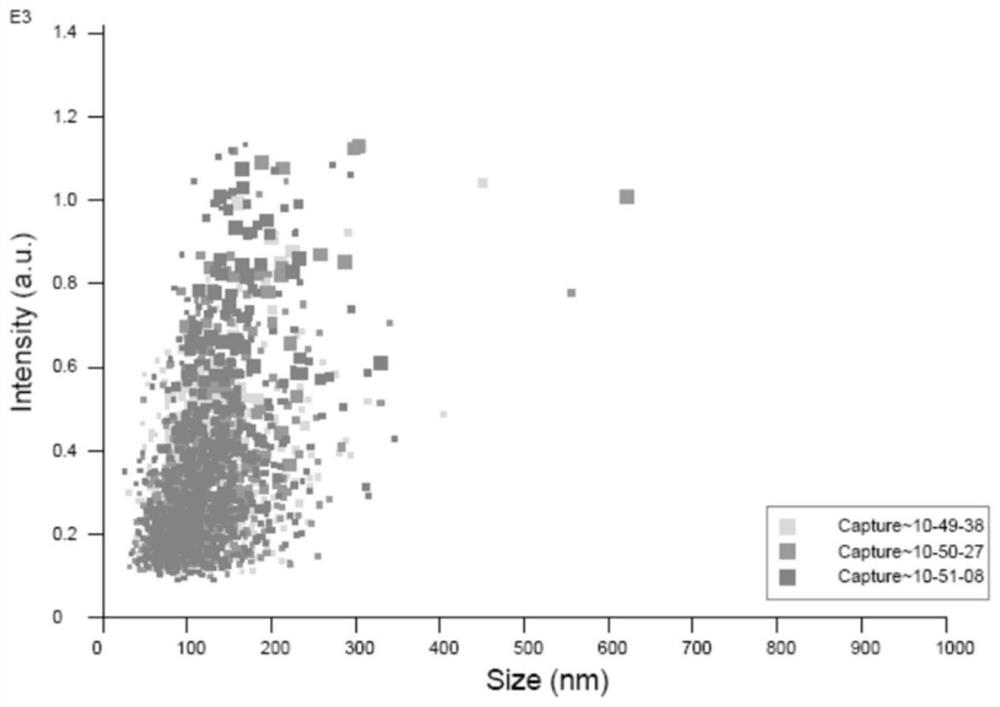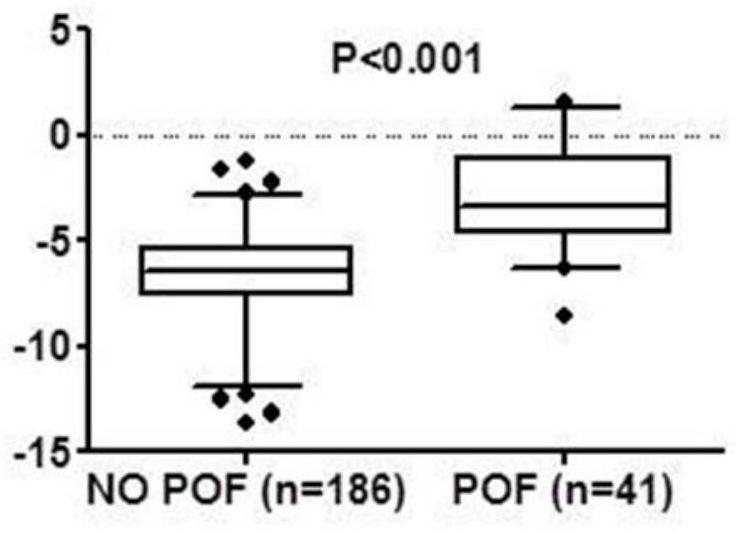A prognostic marker for acute pancreatitis, a prognostic model for acute pancreatitis and its application
A technology of acute pancreatitis and predictive models, applied in the field of disease prognostic markers, acute pancreatitis prognostic markers, and prediction of persistent organ failure status, can solve the problem that cannot be used to predict POF in AP patients, and cannot be used to predict AP Whether the patient has POF, no typical diagnostic markers, etc.
- Summary
- Abstract
- Description
- Claims
- Application Information
AI Technical Summary
Problems solved by technology
Method used
Image
Examples
Embodiment 1
[0051] Example 1 Extraction and identification of exosomes
[0052] In this example, serum exosomes were isolated and screened from serum samples of patients with acute pancreatitis. The results of electron microscopy are shown in Figure 1(A). Exosomes are round particles with a double-membrane structure. The results of the analysis experiment are shown in Figure 1(B). The diameter of most of the particles is in the range of 30-150 nm, which meets the standards for exosome identification, indicating that serum exosomes were successfully extracted from serum samples.
Embodiment 2
[0053] The hsa-miRNA expression profile of the sample in Example 2
[0054] The research sample of the present invention comprises the serum sample of 790 routine acute pancreatitis (AP) patients, is divided into training set and two verification sets, wherein, the AP patient of persistent organ failure (POF) takes place and the AP patient of non-POF compares, The prognosis is poor, the score obtained after scoring by APACHE or BISAP system is high, and the parameters of blood urea nitrogen (BUN) and creatinine are high.
[0055] In the discovery phase, 5 AP samples with POF and 5 AP samples without POF were analyzed by microarray, and 90 differentially expressed exosomal hsa-miRNAs were identified; these 90 exosomal hsa-miRNAs Cluster analysis of expression profiles can achieve the absolute separation of the above 10 samples, indicating that serum exosomal hsa-miRNA has a potential predictive ability for AP with POF. To minimize false positive results, 55 of the 90 exosomal ...
Embodiment 3
[0056] The establishment of embodiment 3 prediction model
[0057] In the training set containing 41 AP samples with POF and 186 AP samples without POF, the remaining 35 exosomal hsa-miRNAs were validated by quantitative PCR, and 17 of them were excluded based on the detection rate of less than 75%. a hsa-miRNA;
[0058] Among the remaining 18 hsa-miRNAs, 12 hsa-miRNAs (hsa-miR-4265, 1208, 516a, 3127, 631, 3180, 5194, 4294, 4513, 4685, 4776, and 6083) were significantly associated with POF status (p<0.001); binomial logistic regression modeling was carried out on these 12 hsa-miRNAs, and a mathematical model based on 3 hsa-miRNAs (hsa-miR-4265, 1208, 3127) was constructed to predict whether POF occurred in AP patients , and determine the equation for the model:
[0059] C mi =6.043+0.244×hsa-miR-3127+0.511×hsa-miR-4265+0.309×hsa-miR-1208
[0060] In this embodiment, hsa-miR-4265, 1208 and 516a were simultaneously selected as individual candidate markers for POF prediction ...
PUM
| Property | Measurement | Unit |
|---|---|---|
| diameter | aaaaa | aaaaa |
Abstract
Description
Claims
Application Information
 Login to View More
Login to View More - R&D
- Intellectual Property
- Life Sciences
- Materials
- Tech Scout
- Unparalleled Data Quality
- Higher Quality Content
- 60% Fewer Hallucinations
Browse by: Latest US Patents, China's latest patents, Technical Efficacy Thesaurus, Application Domain, Technology Topic, Popular Technical Reports.
© 2025 PatSnap. All rights reserved.Legal|Privacy policy|Modern Slavery Act Transparency Statement|Sitemap|About US| Contact US: help@patsnap.com



